Local SEO Guide
Published:

Many business owners think they understand local SEO, but it’s about more than just mentioning your location a few times on your website.
Right Hook has extensive experience carrying out local SEO for businesses across a range of industries, so we understand how the market works and the importance of local SEO for modern businesses. Keep reading to find out more.
What Is Local SEO And Why Does It Matter?
Local SEO is the process of getting your business noticed in local search results. That means not only being seen as an expert in your particular niche, but also reaching the top of search result pages for terms in your area.
To do that, you need to think beyond just your website, but also consider the Map Pack and the local service ads (if available to your business) at the top of each page. You also need to take into account social media rankings or local directory inclusions, which can allow your business to be featured in the ‘Find Results On’ section above the Map Pack.
Local SEO is vital for service-based businesses, as owners often have a specific area they cover, and can’t travel further afield for work. Considering that, according to Google, almost 50% of search queries have a local intent, it’s vital that local businesses work to book their local rankings.
Why Is Local SEO Different?
Local SEO differs from ordinary search engine optimisation because while most digital marketers are focused on expanding their clients’ reach nationally or even internationally, local SEO focuses on rankings within a specific area.
Local search results pages look different to national ones, or ecommerce results pages, because they include a Google Map excerpt, known as The Map Pack. This lists the top local businesses as decided by Google.
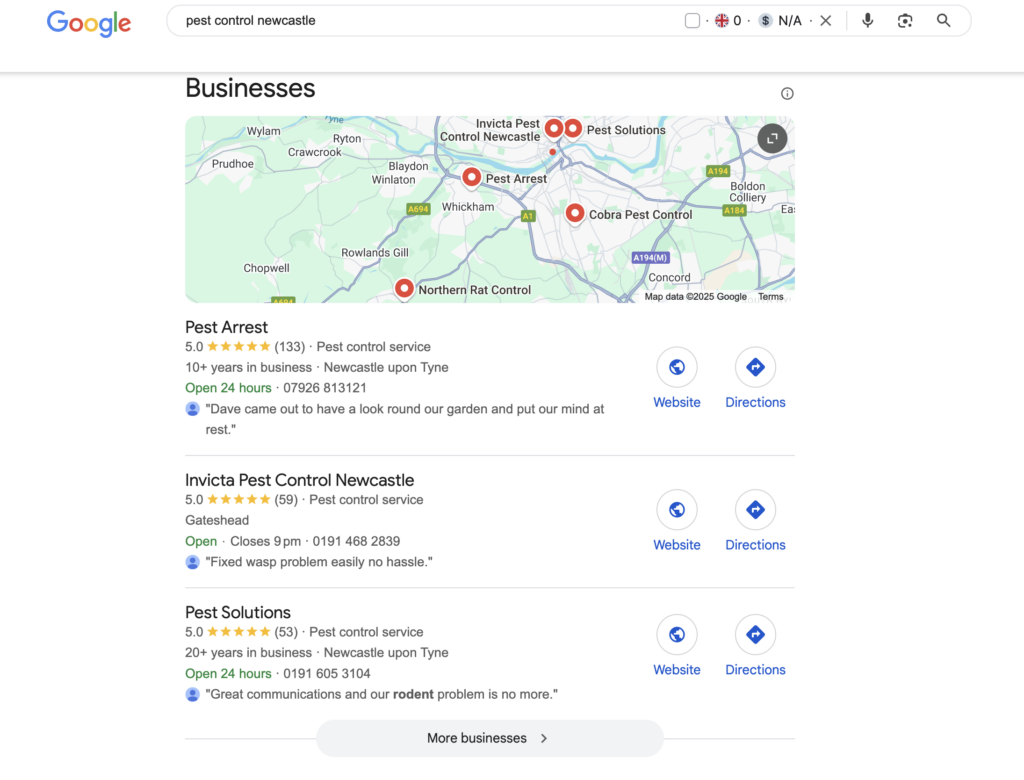
Local results can also include a sponsored section at the top, which is known as the Local Service Ads and provides limited details for customers to quickly find and call service providers in specific industries.

Lower down are websites, with the local rankings usually dominated by a combination of homepages and location pages for a specific area.
Local search is also closely linked to mobile search, since many users will be on the move when searching for a local business, and often do so from mobile devices such as smartphones. As such, most local SEO experts employ a mobile-first approach to ensure they meet the needs of their target audience.
Local SEO Ranking Factors
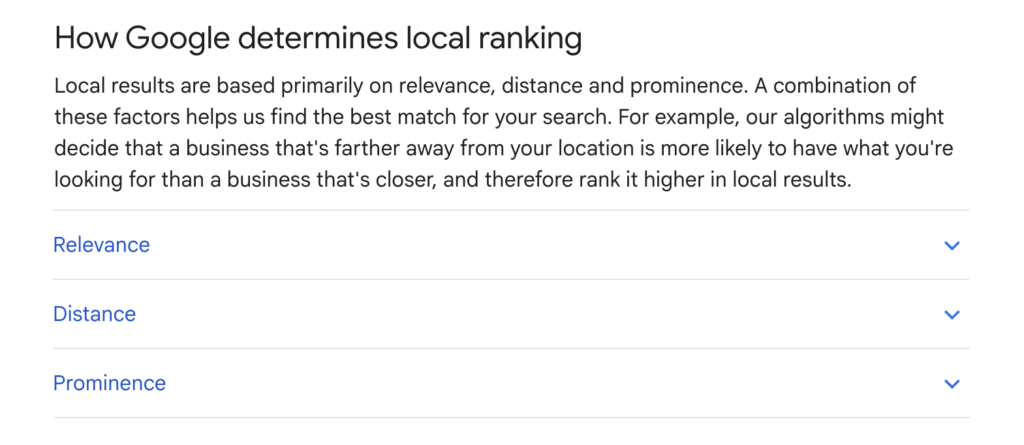
Google and other search engines use a variety of different local ranking factors to determine which local businesses get noticed on specific local searches.
Google advises that there are three main factors that influence local search results: relevance, distance and prominence.
Relevance refers to whether your business offers the services related to the particular search terms being used by local searchers. This can be achieved by providing detailed descriptions of your service offering on your GBP and website.
Distance means how far you are from the location required, and whether you’re able to travel there to provide a service. For local businesses with deliveries, it’s important you mention both your address and the area you’re willing to cover. Businesses that provide home services, such as pest controllers, electricians, plumbers and others, need to make sure they showcase their full service area and make additional GBPs if needed to highlight their reach.
Finally, prominence refers to how well-known the business is in the local area. That means that Google will look for mentions of your business across the internet and use indicators such as positive reviews and social media posts to make a decision. Being a prominent member of your community, and doing things like sponsoring local events, sharing advice in local groups and building local citations will help to improve your local search visibility.
So, what does all this mean in real terms? Keep reading to get expert advice and practical local SEO tips.
Local SEO Basics
Mastering local seo takes a lot of dedication, time and effort. For local business owners looking to make a start, here are some of the basics you need to know about.
Competitor Research
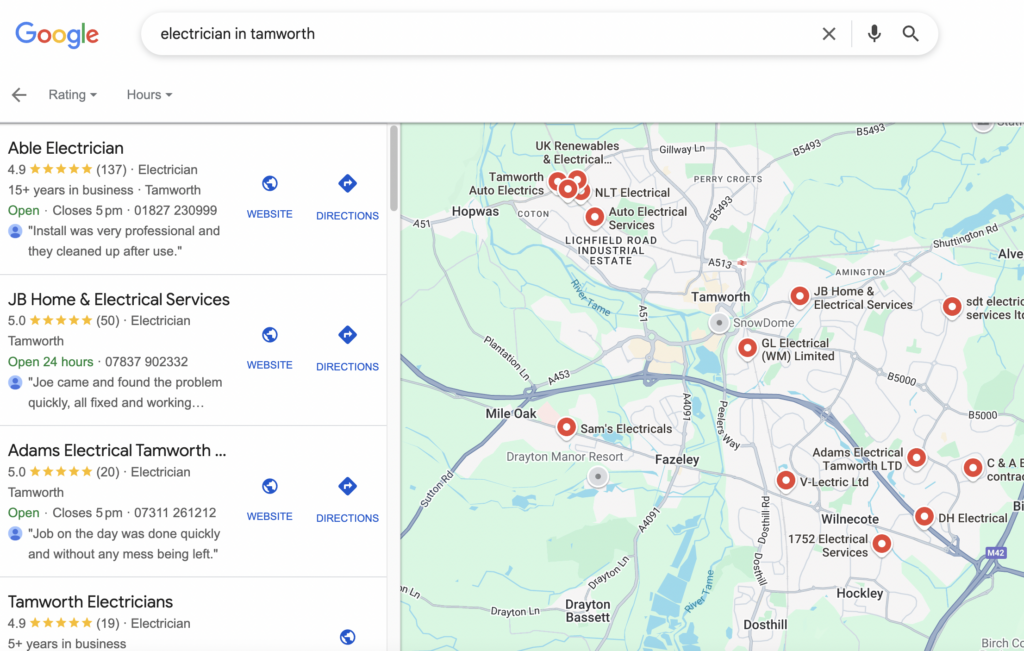
The first step in building your local search visibility is to carry out competitor research to see what works for them.
They already have an effective local SEO strategy, so you can explore what they’ve done and implement certain solutions to get your business noticed.
Local Keyword Research
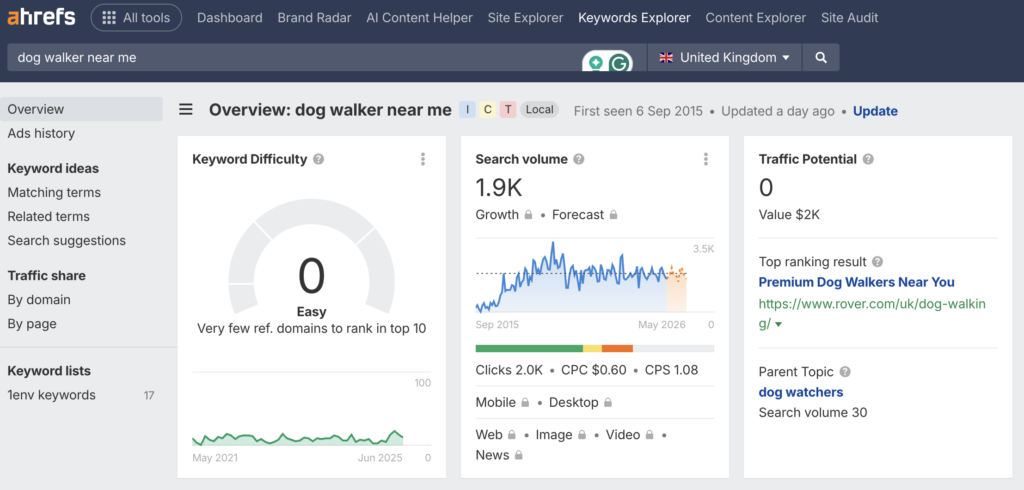
After your competitor research, you need to carry out local keyword research. This means that you have to find local keywords that searchers in your area are looking for.
Use local keyword research tools to find related terms that have high volume and the right search intention, and that would be beneficial to optimise for and add to your content.
Google Business Profile Optimisation

Google Business Profiles (formerly known as Google My Business Profiles) are essential for any local business looking to succeed online.
Since the Map Pack is often above most organic search results, having a high-ranking GBP can help improve your online visibility when it comes to local SEO.
Having your business name, address, and phone number isn’t enough: you need to make sure your GBP has high-quality images and is in the right business categories to get noticed in the local pack.
Optimising your GBP means adding the right services, sharing your opening hours, adding photos and videos, linking it to your social media profiles and writing an accurate description of your business and the services it provides.
Additionally, you can create regular GBP updates, which help to keep the profile active and generate engagement. Being active and checking your GBP regularly means you can check for negative reviews and respond accordingly, and ensure your profile remains accurate.
Location Pages
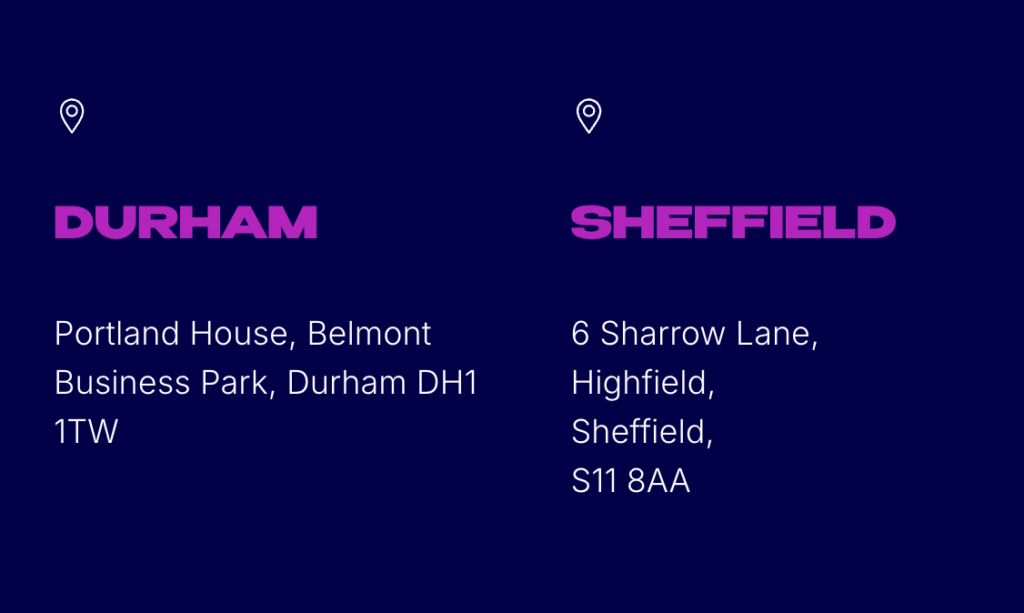
Building location pages can help you link your business to multiple areas. If you have a physical location in this area, then you can use location pages to link to additional GBPs and help strengthen your local reach.
Each location page should target a main keyword that includes Your Main Service + Target Location. The keyword is the key ranking factor, and you can then optimise the rest of the content to support it.
The page can include key business information such as opening hours and your service offering, so that it serves as a hub for potential customers and helps boost your local search engine rankings.
Local Service Ads
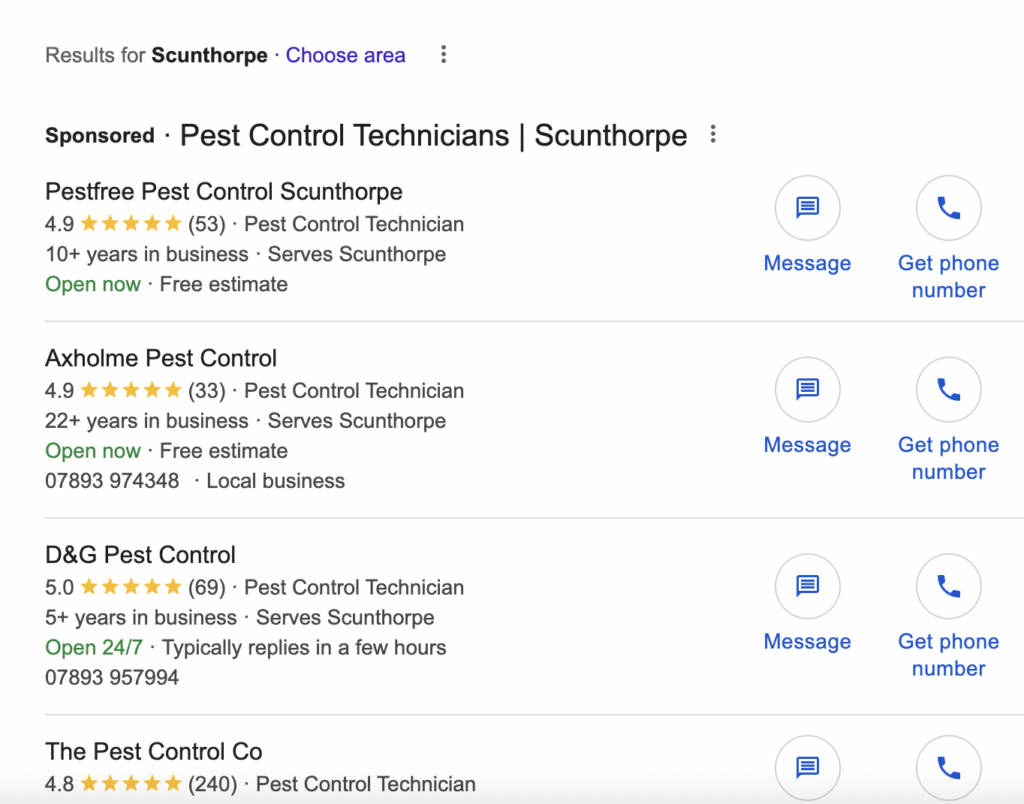
Local Service Ads (LSAs) are advertisements that can be made on certain local search results on Google. They sit above the traditional Google Ads and are only offered for specific trades, such as pest controllers and electricians.
LSAs are limited and only display the business name and star review count, so their performance is closely linked to how many positive reviews you have on your GBP.
Because LSAs sit at the top of local search results pages, they are a fast and cost-effective local SEO strategy for many trade businesses.
Citation Building

Getting your details listed in local business directories, known as building local citations, can help you to improve local search visibility and build vital backlinks. If you’re unsure what backlinks are and how they can benefit your local business, read our guide: What Are Backlinks?
Also, being recognised in local directories can help businesses to improve their credibility and get them noticed on ‘the best X providers in your local area’ lists.
Having these sites linking to yours will benefit your website, and local listings can also get your site noticed on the ‘Find Results On’ section.
Local SEO Tools
There are many local SEO tools on the market that can help you save time and effort when carrying out local SEO. We’ve already covered many of the vital free SEO tools that are needed for any SEO strategy, such as Google Search Console and GA4, but here are some solutions that are specifically crucial for local SEO work.
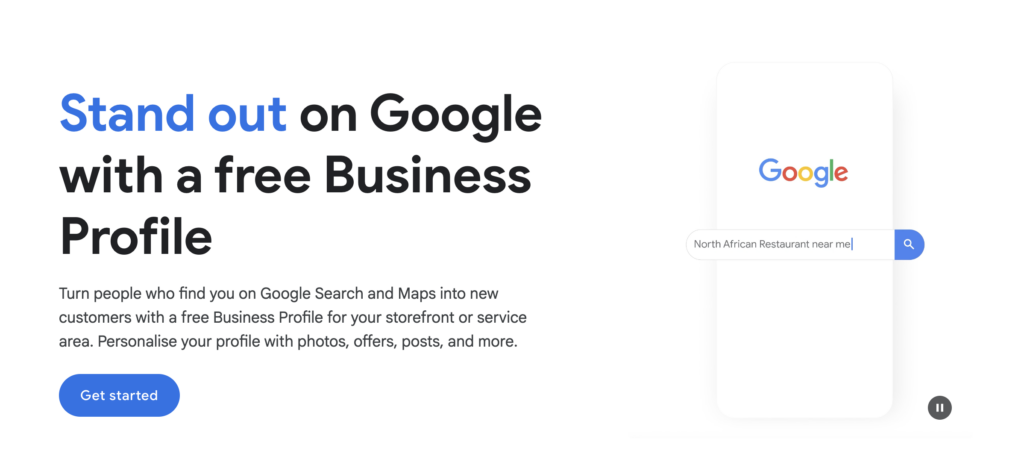
Google Business Manager
Previously known as Google My Business, Google Business Manager enables you to claim and manage your GPB. Your position on the local pack is key to improving your position on Google search results pages in your area and reaching more customers, so it’s essential that you make the most of it and start updating it through Google Business Manager.
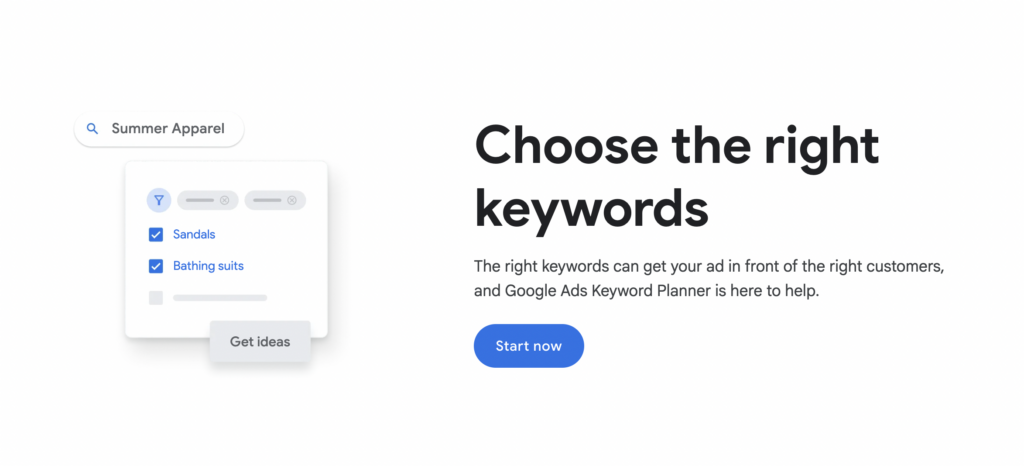
Google Keyword Planner
Technically, Google’s Keyword Planner tool is for Google Ads, but you don’t just have to use it for that. It’s also ideal for helping you find target keywords in your area. By showing you keyword volumes in your area, you can narrow down the terms that local customers and service users are searching for. This free tool is easy to use and can help you build your local SEO strategy.

Grid My Business
For an easy way to find out how many other businesses are ranking in your area, Grid My Business is the perfect tool. All you do is put your location and service into the search bar, and after a few moments, the scan will show you where in the surrounding area is the most saturated with businesses in your niche.

MobileTest.me
As mentioned already, local search is heavily linked to mobile search, which is why you need to make sure your website is mobile-friendly. That means checking if it works on mobile and fixing any technical issues that it might have. Previously, Google itself offered a Mobile-Friendly Test that helped you see how your website appeared on mobile devices, but this was retired in 2023. Many people now use this free alternative from MobileTest.me. All you have to do is choose a device to emulate and then insert your URL, and it will check multiple pages and see how it functions on this device and offer actionable tips to help you improve your site.
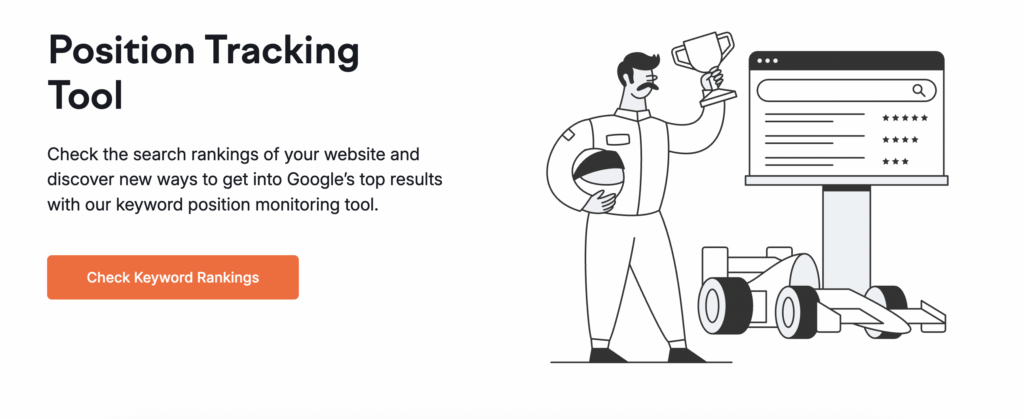
SEM Rush’s Position Tracking
To keep an eye on your ranking positions, both locally and nationally, you need to explore SEMrush’s Position Tracking tool. You can choose to track target keywords and see how you’re ranking for them in your local area. This helps you save time and quickly check if other websites are outpacing you, and make content improvements to get your site back on track.
Start Enhancing Your Local Search Results With Right Hook
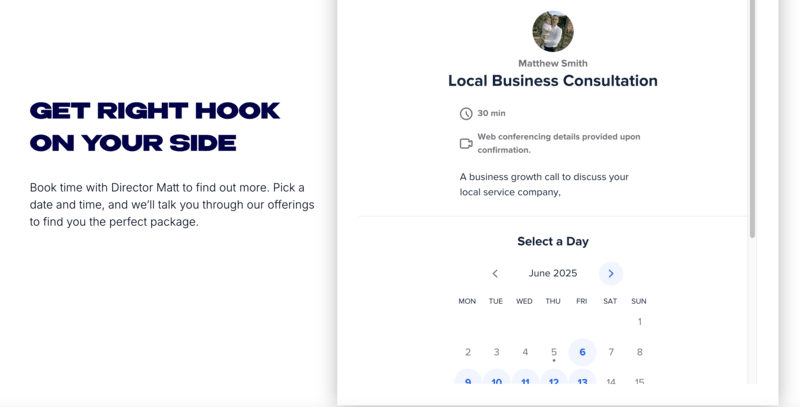
Local seo is constantly evolving. This guide offers a basic overview for beginners, but you can also read Right Hook’s blog and follow us and other SEO experts on social media to ensure that you’re always aware of the latest industry developments and new digital marketing tactics.
Alongside local SEO, local businesses also need a website that meets their needs, a strong social media presence and graphics that reinforce their brand presence. Whether you want to build your business online only or you want logos and decals for vans and business cards, Right Hook has the branding and website development services you need.
From home services to healthcare and everything in between, we work with a wide range of local businesses across the UK, so we have the skills needed to understand your target audience and how you can achieve the success you’ve always wanted.
To start making the most of our local SEO services, book a call with our Director, Matt. He can talk you through how we can use our digital marketing expertise to help grow your business.
Article by:
Hannah Stevenson
I’m a passionate SEO and content creator who loves working with local businesses! It’s so satisfying to be able to help companies to reach their target audience in their area for high volume search terms. As well as writing content, I also spend a lot of my time optimising Google Business Profiles and carrying out off-page SEO for my clients.